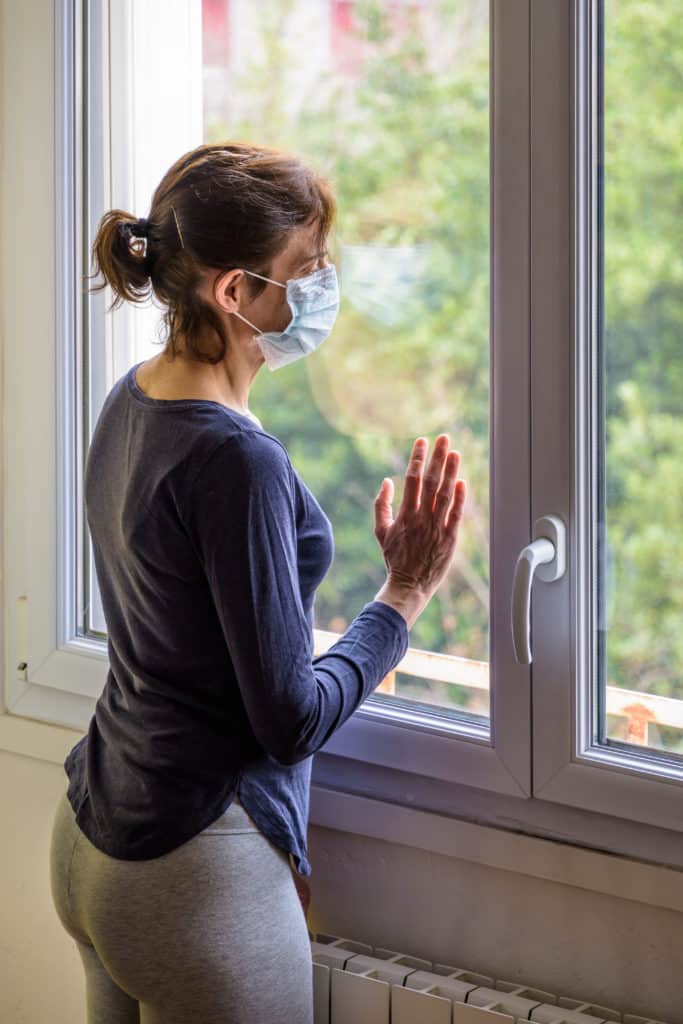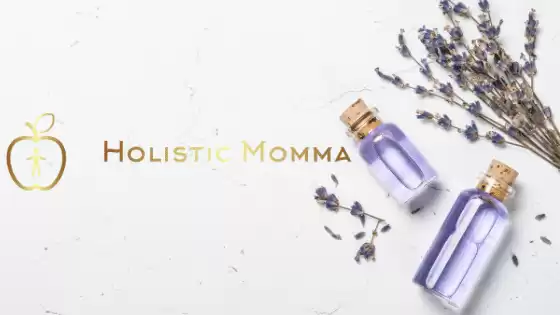8 Natural Research-Backed Ways to Cope if You’re a Hypochondriac

“60-80% of healthy individuals experience somatic symptoms on any given week.” (Kellner, 1987) Hypochondria is also known as illness anxiety disorder or somatic symptom disorder and is often referred to as “health anxiety.”
Table of Contents
What is a Hypochondriac?
A hypochondriac is someone with extreme anxiety around an illness and fear that they are developing services, often life-threatening illnesses. Individuals may display an intense belief that they have an undiagnosed medical condition that their doctors have missed.
The DSM-V (mental health diagnostic manual) created two illnesses: somatic symptom disorder and illness anxiety disorder. Most individuals in a recent study lined up with the criteria for somatic symptom disorder compared to illness anxiety disorder (Bailer et al., 2016).
Individuals with hypochondriasis often develop somatic symptoms based simply on believing they have a significant health concern, so they begin developing physical symptoms. Individuals who struggle with hypochondriasis are unaware of the trouble these symptoms cause physicians because of the lack of a physical cause for them.
Individuals may switch from doctor to doctor, looking for many opinions because they believe they have been misdiagnosed.
Symptoms must occur for six months or longer to be diagnosed with a somatic disorder.
Older adults oftentimes go undiagnosed however somatic and concurrent illnesses are common. (DSM-V, n.d)
Common Symptoms according to the DSM-V:
- Worry about illness
- Fear that physical activities will damage the body
- Checking the body for abnormalities
- Seeking frequent medical assistance and switching from doctor to doctor
- They may think that the doctor is not taking their symptoms seriously if they do not diagnose them
- The recommendation of a referral to a therapist may be shocking and could be refused
- -How to Learn relaxation techniques you can do anywhere.
- -Identify anxiety in yourself and others.
- -Learn how to better react to situations and set a firm foundation for dealing with stressful situations.
- Use Natural Supplements, Dietary, and Lifestyle changes to help you feel less anxious sooner.
- I am a Counselor in Training, so I share what I learn through my education and experience and the price will go up shortly--- However! You will get all of the free updates I make to the course at no additional charge to you! As I learn through research, my education, and personal experimentation of new supplement regimens I will share them with you!
What Causes Someone to Become a Hypochondriac?
Hypochondriac individuals have been suspected of developing this disorder due to aggressive or sexual drives or lowered self-esteem.
Lowered self-esteem is a common factor in many mental illnesses and unhelpful ways of thinking and acting.
Many individuals who are hypochondriacs may have an internal conflict that they are trying to suppress. Their excessive needs for attention combined with misrepresentation of bodily functions can lead to them looking to gain reassurance and develop avoidance behaviors (Thompson & Page, 2007).
However, avoiding dealing with an issue causes it to prolong.
Individuals at a higher risk for Somatic Symptom Disorder include:
- Stressful events
- Lower Income
- Lower Education
- Females are more likely to struggle
- Unemployment
- Older Age
- Abused or suffered childhood adversity
- Struggles with anxiety, depression, panic disorder, or persistent depressive disorder
Conventional Treatments
These are treatments that are commonly used to help someone struggling with hypochondriasis:
- Cognitive-Behavioral Therapy (CBT)
- Mindfulness Therapy
- Medications such as SSRIs and other antidepressants
Natural Treatments
As mentioned above, using multiple forms of therapy can help someone get relief from this anxiety.
However, looking into natural antidepressants and benzodiazepines could help you if you have had a hard time with medications. This is something you want to run by your doctor and do further research to check for any counter interactions between your medications and the more natural alternatives.
1. Exercise
Exercise is a great option, including anything that gets you moving; it does NOT have to be weight lifting or running. Here are a few examples of ways you can get your body moving:
- Rollerblading
- Walking
- Golfing
- Swimming
- Yoga
- Pilates
- Jump Roping
- Dancing
- Rock Climbing
- Hiking
- Frisbee
- Hitting in the Batting Cages
- Bowling
- Kayaking
- Paddleboarding
- Basketball
- Football
- Tennis
- Table Tennis (Ping pong)
- Kissing
- Sex
- Cleaning the House
- Gymnastics
- Tag with your kids
As you can see, many ways to “move” don’t require a gym and are very beneficial for dealing with health anxiety. The better you take care of your health, the less risk for health concerns, right?
2. Mindfulness-Based Cognitive Therapy
“Think of the last time you sat and did something and you were fully present, you were focused on the event or conversation and you felt good. “

As a Clinical Mental Health Counselor Intern, this is something that I am studying immensely. The use of mindfulness sounds so simple, yet it is something we overlook and take for granted.
Think of the last time you sat and did something, and you were fully present, focused on the event or conversation, and felt good. That is what mindfulness is and does for us; it allows us to appreciate the health that we have and the family, friends, home, car, school, etc. that we do have.
3. Cognitive-Behavioral Therapy
Cognitive-behavioral therapy is used to help you change your thoughts and behaviors to deal with unhelpful ways of thinking.
Common unhelpful thoughts of health anxiety or hypochondriasis include some of the following:
- Thinking that weight fluctuations or stomach issues are a disease likely cancer
- Assuming any new feelings are detrimental
- Confusing anxiety symptoms for a severe illness such as “heart racing” as having a heart attack
- Googling symptoms and diagnosing a more extreme/serious illness
Although it is possible to get a severe illness, assuming that a cough or smaller symptom automatically could be way worse is an unhelpful way of thinking that causes further anxiety. CBT helps individuals regain control over how they feel about their health and how they see the world.
Furthermore, CBT helps individuals challenge their unhelpful thoughts about illnesses and improve their avoidant tendencies while reassuring them that things will be okay (Thompson & Page, 2007).
4. Journaling
Journaling is more valuable than you may think!
Journaling can help you write out the symptoms/thoughts you have and how they make you feel. It can be utilized with CBT worksheets to help you figure out more helpful ways of thinking those anxious thoughts.
Write out your gratitudes in your journal to help you give your mind evidence of all of the beautiful things in your life.
Start by naming all the beautiful things in your body that you are grateful for, such as your healthy legs, arms, lungs, and parts that help you move and function every day.
Then name people and things in your life, including your surroundings right near you, that you are grateful for.
- A Day and Night Reflection Journal will help you center your day around positive feelings and gratitude. It’s the perfect place to record and celebrate anything that you are grateful for and to preserve important memories.
- Cultivating gratitude is one of the most potent and important mindfulness exercises, and thankfulness has proven to have a positive effect on a person's mental health and general well-being
Pro Tip. Try writing about the things you are actively working on, you have improved on, or that you wish you possessed. For example, “I am grateful for my job, my health, my freedom, my family, my ability to choose peace and the present moment over anxiety. I am grateful for people who believe I can overcome these fears and those who love me and support me no matter what”.
Try writing your gratitude every day using a gratitude journal to help you feel less anxious and more focused on all of the blessings in your life.
5. Psychoeducation
Hypochondriac individuals struggling with getting relief or trusting doctors, therapists, and other mental health experts may need to do some further learning of psychoeducation. There are groups led by therapists that provide psychoeducation on topics such as stress management, anxiety, depression, and more.
Being in a group could allow you to be around others who relate to you, but you are all being informed on helpful ways of coping and thinking.
Psychoeducation could also include learning about cognitive distortions and their unhelpful ways of thinking. For example, catastrophizing and thinking that it does not mean it will happen again because you had a sickness or illness or someone you know had it before.
This goes great with the gratitude practice because it can be challenging to fight the information in our minds that seems factual. However, thoughts are not facts, and you can challenge those thoughts by utilizing gratitudes and more helpful ways of thinking.
Instead of focusing on “I feel this lump in my throat; it could be cancer,” try countering with ” I am so grateful for my health, peace, joy, my ability to live in the present moment, and the ability to take care of my overall health including my mental health.” This is just an example of course of a way to counter those unhelpful thoughts, but the more you challenge them and replace them, the more confidence you will gain over your anxiety.
6. Relaxation Techniques
Relaxation techniques are used in exposure therapy, meditation, and counseling therapies. Relaxation therapies can be utilized when you feel overwhelmed about your health and question yourself and those around you. Learning how to bring yourself back down and relax in the present moment can help you feel less worried about your health and more focused on all that you can control in the present moment.
7. Grounding Techniques
Grounding techniques are similar to relaxation techniques in that they help distract your mind from whatever stress or anxiety you currently have. They are also faster acting than some alternatives, which can be vital if you have anxiety or panic attacks.
The 5-4-3-2-1 method is a popular one to help bring you back down; click the button to learn more and get relief quickly!
8. Interpersonal Therapy
This could be the use of Family therapy to help the therapist better understand the family dynamic. This can help you figure out why you feel this way and help your therapist better educate your family on how to support you.
This can be done with marriage counseling as well, bringing your spouse into your counseling sessions so they can become aware of your struggles.
A family systems approach to this is that as a hypochondriac or someone who suffers from hypochondriasis, you and your family can team up with you to fight against the problem. Essentially these beliefs are separated from you and can be visualized outside of your body as a problem that your family works together to fight against.
In Summary
Hyponchdriacs are individuals just like everyone else, but they have a concern about their health that others may struggle relating to at times. That is why talking to someone who can walk you through those feelings of anxiety can be very helpful, along with your efforts of exercising and journaling.
References:
Bailer, J., Kerstner, T., Witthöft, M., Diener, C., Mier, D., & Rist, F. (2016). Health anxiety and hypochondriasis in the light of DSM-5. Anxiety, stress, and coping, 29(2), 219–239. https://doi.org/10.1080/10615806.2015.1036243
Kellner R. (1987). Hypochondriasis and somatization. JAMA, 258(19), 2718–2722.
Thomson, A. B., & Page, L. A. (2007). Psychotherapies for hypochondriasis. The Cochrane database of systematic reviews, 2007(4), CD006520. https://doi.org/10.1002/14651858.CD006520.pub2
Originally posted 2022-07-19 06:01:28.
Megan Santiago
Latest posts by Megan Santiago (see all)
- How to Find a Trauma Therapist in Tampa - September 30, 2024
- Get Your Child to Listen: A Clear-Cut Way To Feel Heard - March 10, 2024
- Help With Bills – How to Get Financial Assistance - March 10, 2024



